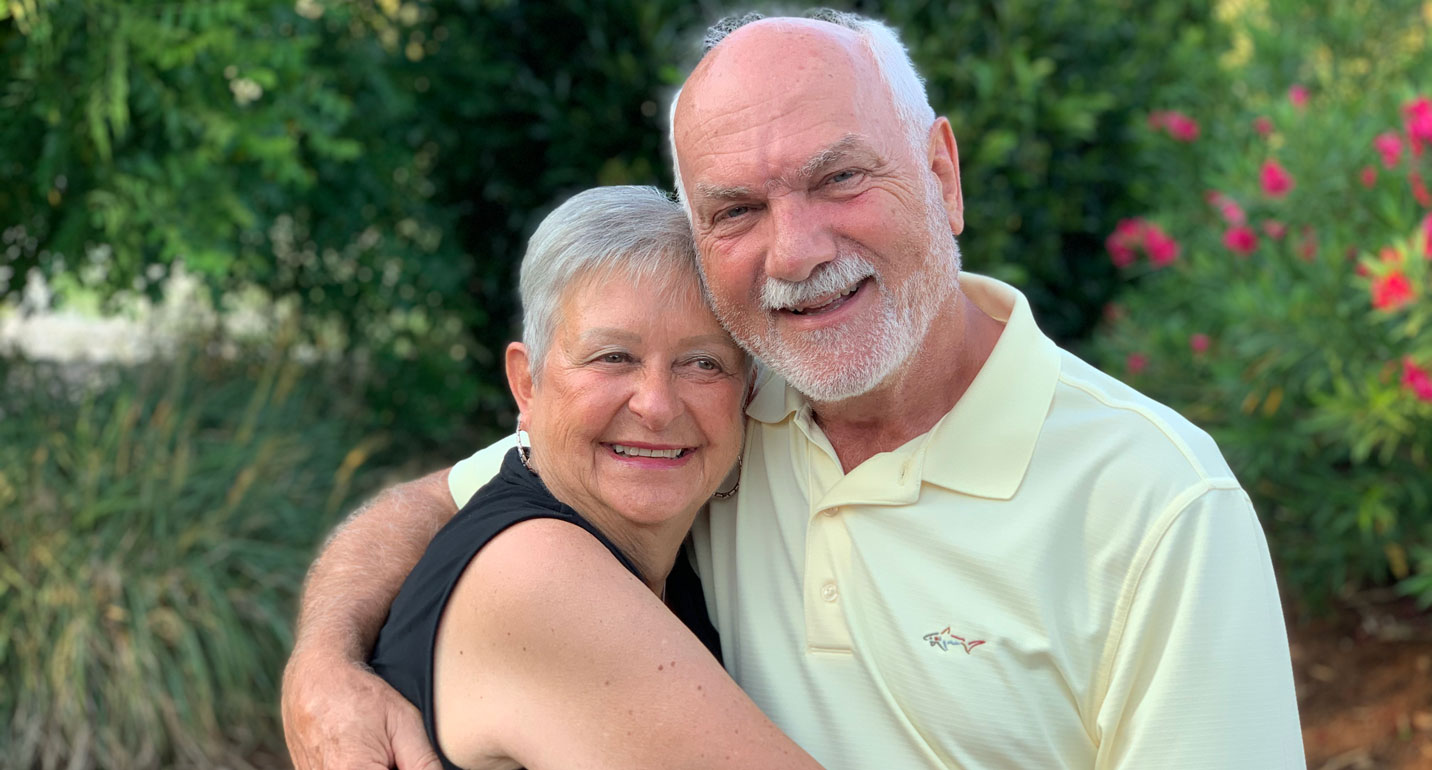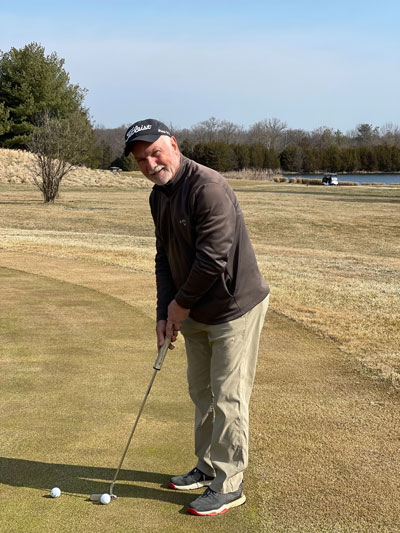
Why does David Viglione of Leesburg, Virginia, call himself “the poster child” of CyberKnife® therapy? Credit the long-term success of his CyberKnife treatment for prostate cancer—a decade later he is still cancer free. When he was first diagnosed, David was working full-time; and living an active life filled with travel, racquetball, golf, and quality time with his family. Fast forward to today, and David is still enjoying that same vibrant lifestyle.
 “When I found out I had prostate cancer, I decided my best course of action was to get smarter before making a decision,” David says. He discovered that there were several good options to address the cancer, but he was concerned about their potential long-term side effects, and how that would impact his active lifestyle. Then, after meeting with Sean Collins, MD, PhD, the director of the CyberKnife Prostate program at MedStar Georgetown University Hospital, David felt hopeful.
“When I found out I had prostate cancer, I decided my best course of action was to get smarter before making a decision,” David says. He discovered that there were several good options to address the cancer, but he was concerned about their potential long-term side effects, and how that would impact his active lifestyle. Then, after meeting with Sean Collins, MD, PhD, the director of the CyberKnife Prostate program at MedStar Georgetown University Hospital, David felt hopeful.
Dr. Collins explained that CyberKnife is highly accurate and precisely targets cancer cells with high doses of radiation. David was thrilled to learn that most CyberKnife patients only need five treatments, versus the 40 required with conventional radiation. Plus, with CyberKnife, there is virtually no recovery time.
Because of its precision, CyberKnife protects surrounding healthy tissues and organs. The procedure itself is painless and the likelihood of significant side effects is minimal. “I knew it was the optimal solution for me,” says David. “It would take care of the cancer and let me get back to playing sports and living the kind of lifestyle that I had before.”
“My treatments were after work at MedStar Georgetown. I’d drive down from work; go do my CyberKnife therapy; then I’d drive home and go to work the next day. I never even stopped traveling. I traveled both domestically and internationally for work. Nothing slowed me down,” David says. Then, there was the ease of treatment. “You don’t feel it,” he says. “CyberKnife is painless. There’s always soft music playing in the background. The doctors and the staff at MedStar Georgetown put you at ease. They treat you as part of their Radiation Oncology MedStar family! I am so happy with my decision to select Cyberknife to treat and eliminate my prostate cancer!”
MedStar Georgetown was the first hospital on the east coast to treat patients with the CyberKnife. It has been doing so for 22 years and has served more than 2,000 prostate cancer patients. “We follow all of them,” says Dr. Collins.
Dr. Collins adds that “David is living proof that for patients with low- and intermediate-risk prostate cancer, CyberKnife is an excellent option. And it's not just David's case that supports this.” In fact, the CyberKnife system has more than two decades of clinical proof. Studies following patients since 2000 show that long-term survivability with CyberKnife is as good as with traditional prostate cancer treatments—while being quicker and much less disruptive to the patient, with minimal side effects.
Dr. Collins puts it in practical, personal terms: “My patients are really happy. The fact that I use the CyberKnife to treat my patients with prostate cancer allows me to sleep well at night. I know that my patient’s PSA is going to drop; and it’s been proven that with CyberKnife, patients are unlikely to experience significant late complications that could adversely affect their quality of life.”
More than a decade after treatment, David says he’s enjoyed great quality and quantity of life. “For me,” he says, “CyberKnife, and my team at MedStar Georgetown, fulfilled their mission. I’m living proof.”
To schedule an appointment with one of our specialists, call 202-444-4639. If you would like to learn more about CyberKnife at MedStar Georgetown, please click here.













